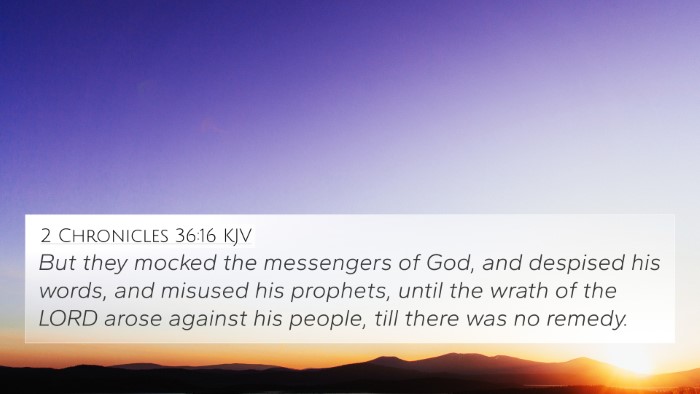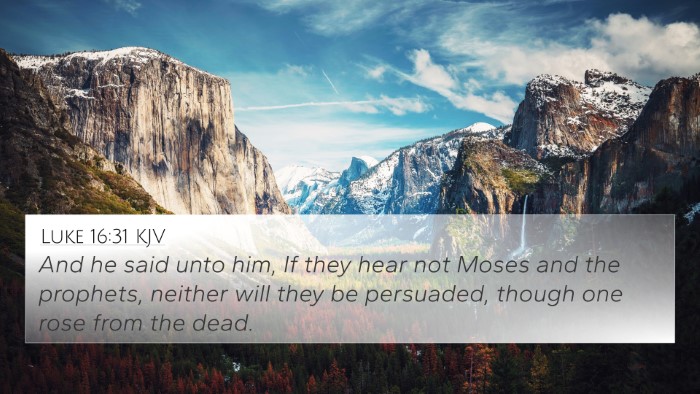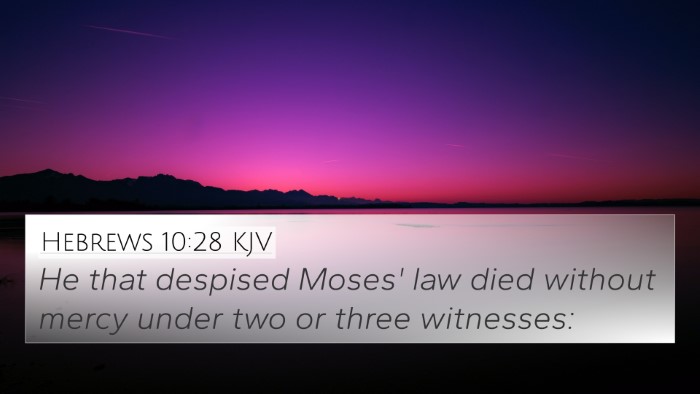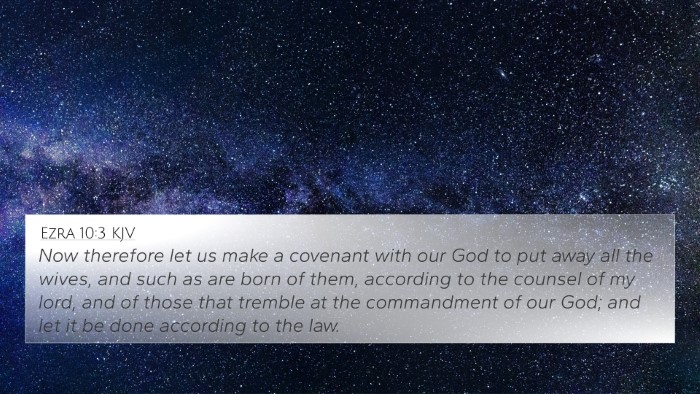Proverbs 13:13 - Understanding the Verse
Proverbs 13:13 states: “Whoever despises the word brings destruction on himself, but he who reveres the commandment will be rewarded.”
This verse emphasizes the contrasting outcomes of how individuals respond to wisdom, instruction, and divine commands. Let us explore the insights from various public domain commentaries.
Commentary Insights
Matthew Henry
Matthew Henry comments that this proverb highlights the importance of valuing the teachings of God. Despising wisdom is depicted as a form of self-destruction, while revering God’s commandments is shown to lead to rewards, possibly both in this life and the next. The connection here can be viewed as a moral lesson encouraging readers to choose wisdom.
Albert Barnes
Albert Barnes explains that the act of despising the word of God results in calamity. He notes that the term “word” can refer to both Scriptural commandments and wise advice from godly mentors. This commentary aligns with cross-references found in Ezekiel 3:6-7, where God's word brings both a commission for life and a warning alongside it.
Adam Clarke
Adam Clarke points out the duality of the verse: the negative consequence of contempt for divine instructions and the positive outcome of obedience. He asserts that this reflects a broader biblical theme regarding obedience and wisdom found in connected verses such as Psalm 19:11, which speaks to the benefits of following God’s law.
Related Bible Cross-References
- Psalm 1:1-3 - This passage parallels Proverbs 13:13 by highlighting the benefits of meditating on God’s law.
- James 1:22-25 - Calls for not just hearing but acting on the word of God, emphasizing the contrast found in Proverbs.
- Proverbs 1:24-25 - This text reiterates the theme of rejecting wisdom and the consequences of such actions.
- Jeremiah 29:11 - Presents God’s plans for those who adhere to His guidance, reinforcing the promise of rewards for obedience.
- Hebrews 10:39 - Discusses faith and preservation in the context of urging the faithful not to shrink back from the word.
- Deuteronomy 30:15-20 - A clear call to choose life through obedience to God’s commandments.
- Romans 6:23 - Describes the consequences of sin versus the gift of eternal life through obedience to God.
Linking Bible Scriptures
The investigation of Proverbs 13:13 within the wider context of Scripture reveals a significant thematic connection regarding wisdom, obedience, and the consequential outcomes that result from each choice. The act of desiring wisdom leads to a lifestyle aligned with divine principles, much reflected in the New Testament teachings such as in Matthew 7:24-27, where the wise person builds their house on the rock, symbolizing a foundation built on God’s word.
Comparative Bible Verse Analysis
When conducting a comparative Bible verse analysis, one finds that the overarching message found in Proverbs 13:13 resonates with many passages which emphasize a similar theme of valuing divine instruction versus the folly of ignoring it. This comparative study is key in establishing a robust understanding of Biblical wisdom.
Conclusion
In summary, Proverbs 13:13 serves as a reminder of the implications of how we interact with God’s word. Despising it leads to destruction, while revering it brings rewards. Understanding related verses helps to further elaborate on this critical theme of obedience and wisdom, reinforcing the importance of seeking knowledge through delineated connections between Biblical texts.
Tools for Bible Cross-Referencing
For individuals wishing to delve deeper, utilizing a Bible concordance or comprehensive bible cross-reference guide can facilitate a rich exploration into the interconnectedness of Scripture and foster a more profound understanding of specific teachings.
Final Reflection
As you continue to study the Bible, reflect on how various verses communicate similar themes and messages. This can profoundly enhance your biblical understanding and spiritual growth.























